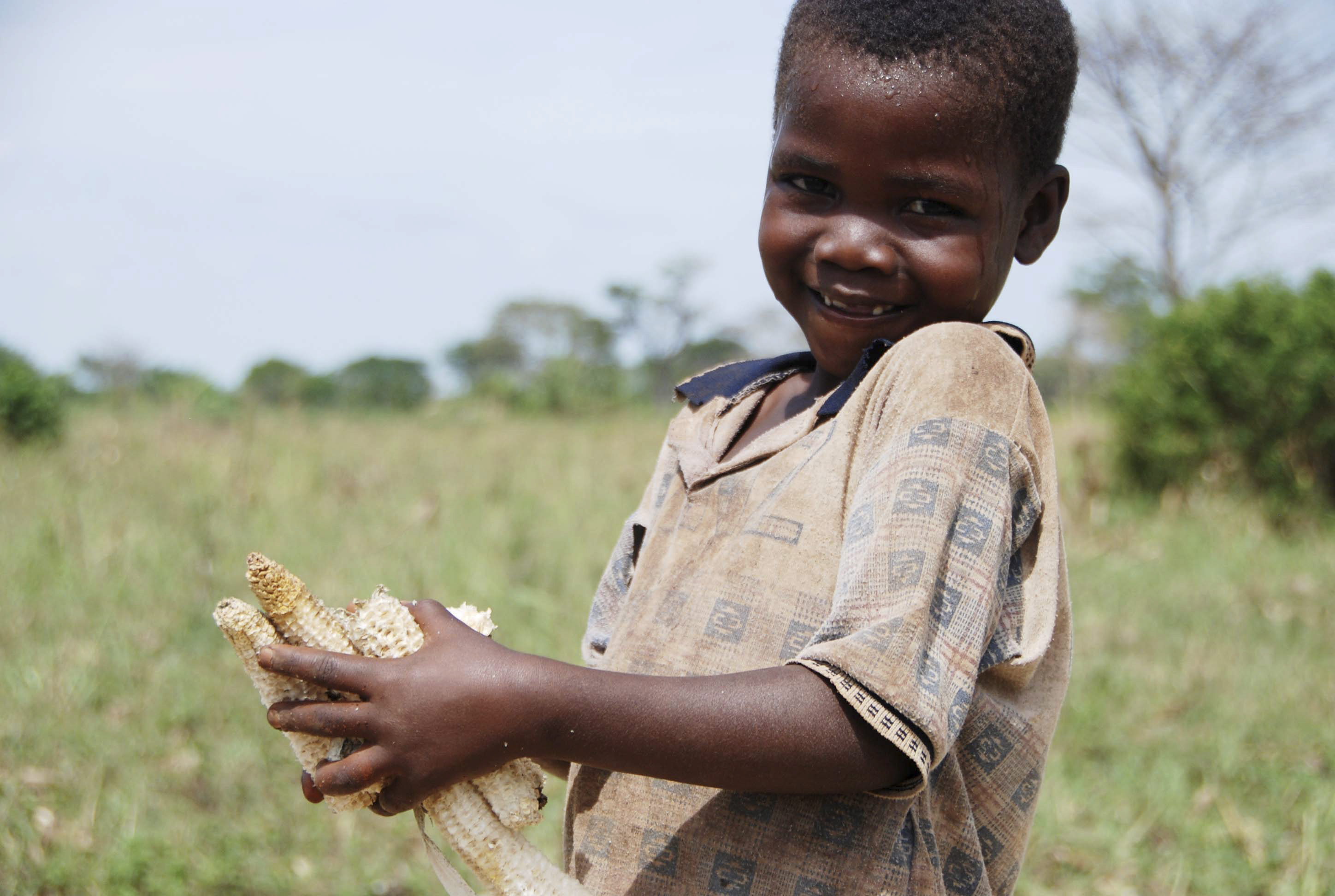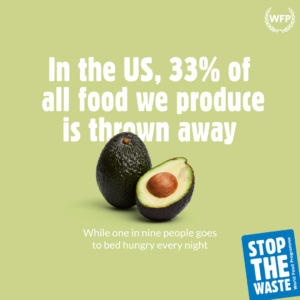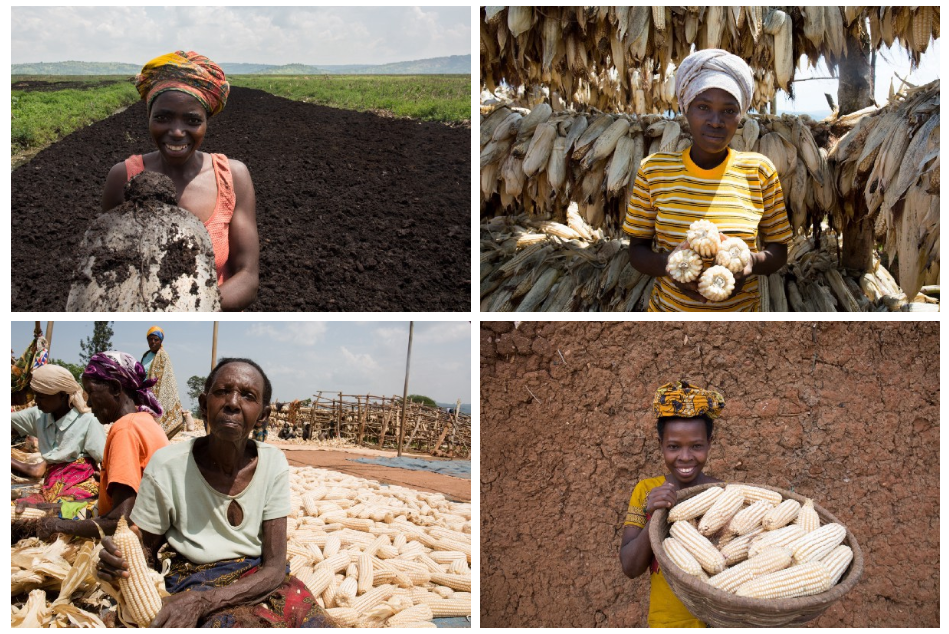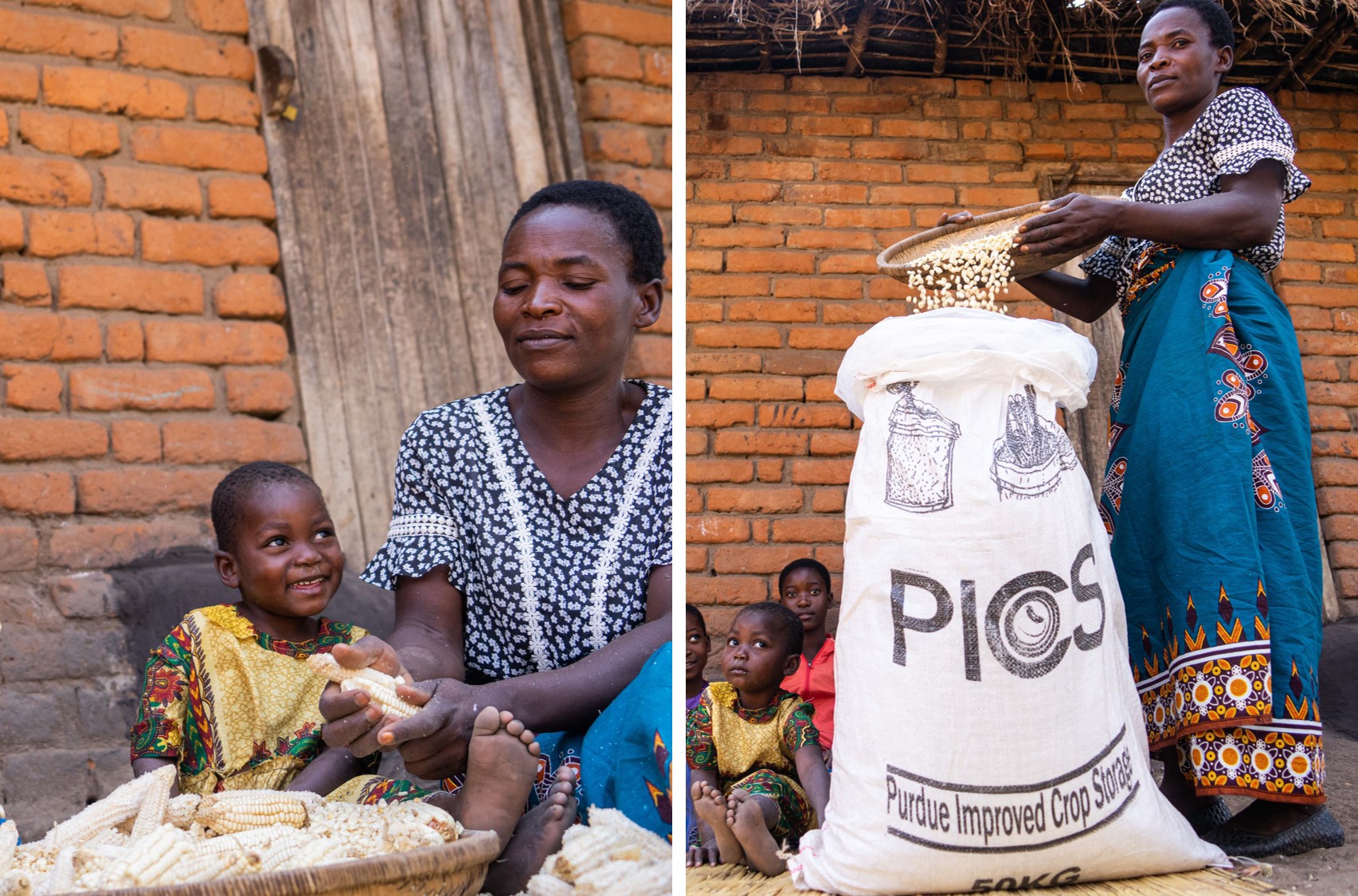
My Pledge to #StopTheWaste
Note from Sadie: If I asked you the question, what’s your favorite late night snack? I don’t know what your answer would be, but what I do know is that you would have one. Maybe it’s popcorn, chocolate, or pickles (hey, to each their own), but just the fact that most people in our country even have a late night snack choice is something we take for granted.
Did you know that one in nine people still go to bed hungry every night? This is why in honor of today’s World Food Day, I’m joining the United Nations World Food Programme (WFP) to make my pledge to #StoptheWaste and help shine a light on the reality of all the food being lost or thrown away while others are missing meals altogether. I’ve invited my friends from WFP to share about why this is such a large issue and what we can each do to be a part of the change starting today. I hope you’ll join me in the fight to end hunger!
Be it a moldy piece of cheese or an old carrot, we’re all guilty of leaving some frightful foodstuff festering at the back of our fridge. Instead of condemning it to a landfill, let’s first imagine what that ingredient could become. It could become part of the most powerful recipe in the world!
WFP is the largest humanitarian organization fighting hunger worldwide. WFP works in more than 80 countries around the world, feeding millions of people driven into hunger by conflict and the impact of climate change, and laying the foundations for a better future.
As you may know, one of the biggest paradoxes of our generation is the amount of food we consume versus the food we waste, and we find ourselves with a huge challenge on our hands – every day across the world 1 in 9 people goes to bed hungry, yet there is enough food produced to feed everyone on the planet!

Approximately one third of the 4 billion metric tons of food we produce each year is lost or wasted, costing the global economy nearly US$1 trillion annually. In the US alone, 33 percent of all the food we produce is thrown away. At the same time, war and unrest are forcing more people to flee their homes than at any time since the Second World War, making it difficult for millions of people to grow their own food or buy it at an affordable price.
WFP’s goal is a world with Zero Hunger – and part of achieving that goal is preventing food loss. A recent report by the World Resources Institute confirmed that halving the rate of food loss and waste is an important strategy that would contribute to achieving the UN Sustainable Development Goals, meeting the goals of the Paris Agreement on climate change, and sustainably feeding the planet by 2050.
How does WFP prevent food loss? By helping smallholder farmers; providing them with new innovations for storage and transportation that prevent crops from spoiling prematurely, and by connecting them with markets.
In developing countries, 40 percent of losses occur after harvest, during transport or in storage. WFP is working every day to support local farmers with the necessary tools, innovations and skills they need to prevent this, and aims to ensure that the farmers have strengthened livelihoods by 2030.
 In Sudan, WFP helps farmers reduce losses with the simple use of hermetic silos and storage bags. Local farmers lose 90 percent of their harvest when stored in traditional storage bags — mostly due to the widespread damage caused by insects, rodents and mold. By encouraging farmers to use hermetic bags for crop storage instead of traditional jute bags and educating them on the potential value of their crop savings, WFP is helping Sudanese farmers reduce post-harvest losses to almost zero. The project has shown that 100 percent of food stored in the bags remains intact and free of live insects – a huge saving.
In Sudan, WFP helps farmers reduce losses with the simple use of hermetic silos and storage bags. Local farmers lose 90 percent of their harvest when stored in traditional storage bags — mostly due to the widespread damage caused by insects, rodents and mold. By encouraging farmers to use hermetic bags for crop storage instead of traditional jute bags and educating them on the potential value of their crop savings, WFP is helping Sudanese farmers reduce post-harvest losses to almost zero. The project has shown that 100 percent of food stored in the bags remains intact and free of live insects – a huge saving.
 In Malawi, the lack of professional farming skills to handle and store harvested crops is one of the biggest challenges that smallholder farmers face. A third of their hard-earned yields is lost to rodents, weevils and rotting barely a few months after harvesting. Imagine what one farmer could do if all that food was not wasted — and now imagine what this would mean if this happened with millions of farmers who are also food-insecure.
In Malawi, the lack of professional farming skills to handle and store harvested crops is one of the biggest challenges that smallholder farmers face. A third of their hard-earned yields is lost to rodents, weevils and rotting barely a few months after harvesting. Imagine what one farmer could do if all that food was not wasted — and now imagine what this would mean if this happened with millions of farmers who are also food-insecure.
To tackle this challenge, WFP trains tens of thousands of members of Malawian farmer organizations – half of them women – in post-harvest seed handling, seed grading, seed storage, bagging, warehouse management and financial management. Through this project, farmers are learning new skills and are advised on how to access markets. As a result, Malawian farmers are able to leap out of poverty and hunger and are equipped to be competitive players on the markets.
WFP aims to enable all 200 million smallholder farmers, especially women, in Africa to eradicate post-harvest loss by 2030.
But whether it’s farmers in Africa using silos to reduce food loss – or us at home making sure that no food in the fridge gets forgotten and goes to waste – we all can play a part in the global fight against food waste and contribute toward a world with Zero Hunger.
Even the simplest action can create a major change so join me and get involved! Let’s all raid our fridges and find a forgotten ingredient that can be rescued today.
HOW YOU CAN GET INVOLVED:
- Search your fridge or pantry for a food item that is nearing its expiration date but still safe to eat.
- Snap a selfie with the item. Of course, don’t forget to eat it!
- Share the photo on your channel with a pledge to #StopTheWaste and tag three friends challenging them to do the same. Don’t forget to tag @WorldFoodProgramme!
Possibilities are endless so why not get creative? Featuring the spare items you’ve found, share a recipe or simply share your “secret tip” for the best food waste dish, then encourage others to share their own!
Food waste is a global issue but we all can play a role in ensuring that no food is being wasted on our plates at home. By taking these three simple steps, you can do your bit in the global fight against food waste and help start reversing the issue from today.
Join us in our pledge to #StoptheWaste. Together, we can all commit to do better and move closer toward a world with Zero Hunger!
For more about WFP and how to get involved, visit www.wfp.org/foodwaste.
– Jessica Andrews, Head of Marketing, on behalf of WFP.














